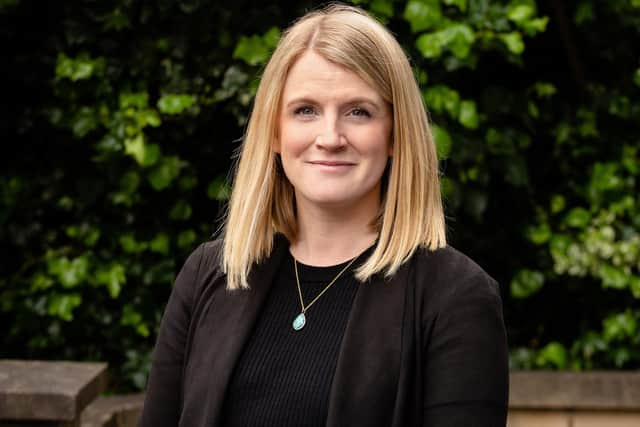Charity trustees facing tough choices must make sure decisions are taken properly - Helen Kidd
Like everything, the cost of running a charity is increasing. Keeping the lights switched on costs more. The price of travelling is higher. Wage bills are rising too.
At the same time, money available from grant-giving organisations is understandably falling as they face not only the same challenges but increased applications. Even if funding is consistent year-on-year, it’s not matching inflation. Neither are the rates paid by agencies which commission charities and social enterprises to do work on their behalf.
Advertisement
Hide AdAdvertisement
Hide AdCompassion and a desire to help is so often what drives people to become involved with charitable work. All of us who are trustees never wish to lose sight of this.


Fundamentally, trustees are there to ensure public benefit is provided, good can be done and an organisation continues to exist. They need to be innovative and determined yet practical, particularly when times are tough. It is for that greater good that difficult decisions often cannot be avoided. And, whilst it’s obviously important that trustees make the right decision for their organisation, the way in which they reach those decisions is critical too.
Take voting. You might well have the best people with the best intentions around the table. They might all be in agreement, but if voting is not formally done in compliance with the constitution and the result recorded, how do you prove your board has acted in the best interests of the charity?
Are potential conflicts of interest properly declared and noted? Are minutes properly taken and approved?
No-one wants anything to go wrong, but if it does and charity regulator OSCR comes calling, you could find yourself with an issue if they ask to see your records.
From a legal perspective, we focus on getting the basics around good governance and strong decision-making right.
That, of course, stems from having a board which is engaged and recognises collective responsibility.
Respectful, robust discussion is healthy. A dissenting vote – or votes – is absolutely fine. But, legally, boards must be bound by a majority decision which aligns with its charitable purposes and stated strategy.
Advertisement
Hide AdAdvertisement
Hide AdA good chair is key. They unlock the innovation needed to ensure organisations achieve their goals. They listen, guide and provide leadership. This can help reduce the risk of decisions being challenged by ensuring they are taken well and the board moves forward.
Clearly, trustees need to understand why they’re being asked to consider a specific point/action/policy. For this to happen there needs to be the right flow of information and clear communication between senior management and the board – and this should very much be a two-way street. That is never so true as in times of difficulty.
It is good practice to continually identify risks around income and act accordingly. Many boards are grappling with decisions over whether to dip into their reserves. If heading in that direction, they’re best advised to know what their reserves policy says. If not, do not be afraid to ask the question.
Sector-wide, non-essential spending – what little remained post-pandemic – is being cut. Services are being scaled back. Jobs are at risk. Trustees need to be clear about the impact of decisions in these regards.
The timing of funding can mean charities struggle to balance the books. Discussions with funders are important, so they understand your situation. If you find yourself unable to deliver a project, it’s best to be on the front-foot with funders and talk to them about that. Openness is better in the long-run and may even prevent last-gasp problems.
The simplest – sometimes costliest – mistakes are often made because people do not realise what they’re doing might have a negative impact on the organisation. Trustee training has a big role to play in helping to get things right.
The most necessary decisions are often the most difficult. Those of us who are trustees, though, have a responsibility to the people with whom our charities work. For them, we cannot afford to avoid making them or not reaching them properly.
Helen Kidd is a Partner, Lindsays